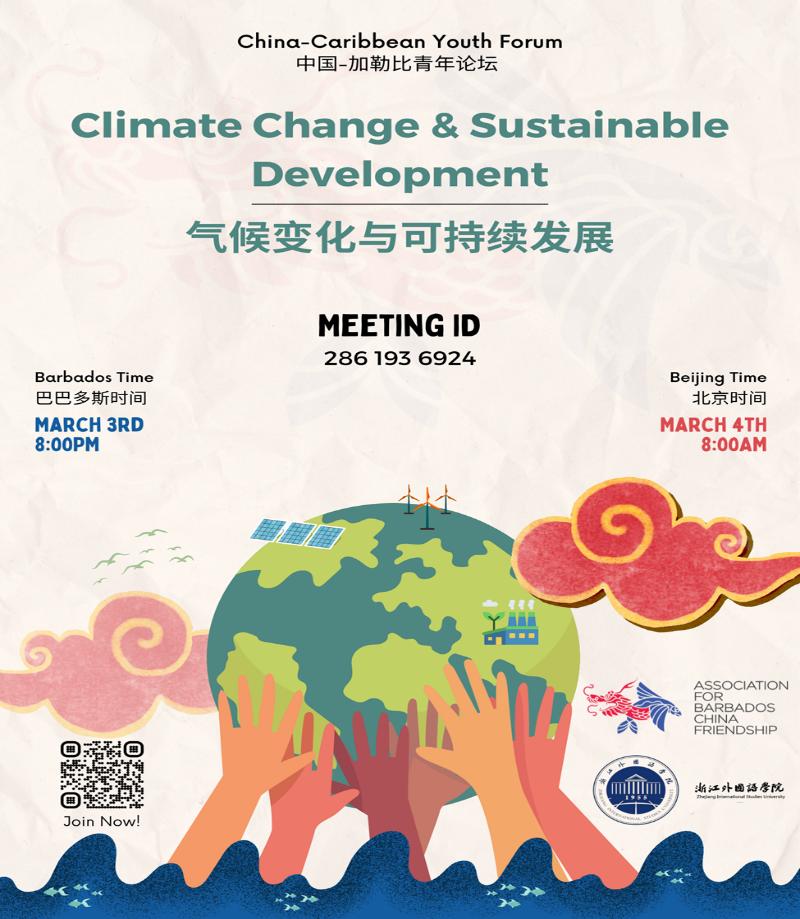The Confucius Institute | The University of the West Indies at Cave Hill, Barbados - Home (uwi.edu)
The establishment of the Confucius Institute (CI) at The University of the West Indies, Cave Hill Campus reflects the recognition at the highest levels of the campus leadership that its work needed to be internationalized if it was to transform to remain relevant to its community.
The decision to establish the CI also had the purpose of keeping the campus aligned with the goals and objectives of host country Barbados and all countries served by the campus, to deepen and expand cooperation with China.
From its establishment on April 20, 2015, the CI has reflected the steadfast commitment of the campus to the mutual goals of educational cooperation as agreed in the Memorandum of Understanding of July 7, 2014 between the CI Headquarters and the Cave Hill Campus. This has enabled the CI to equip generations of students with the knowledge to both see China as a viable option for pursuing their life objectives and with the tools to do so.
The CI is a joint undertaking of the Cave Hill Campus and the China University of Political Science and Law (CUPL).
The world according to Lu Xinghua, China’s renegade philosopher – The China Project
Lu Xinghua is the sort of individual who complicates the outside world’s vision of China. He is a man of contradictions, an intellectual with brazen ideas who is disconnected from both mainstream politics and popular dissent.
He is the sort of individual that the outside world might find difficult to imagine existing in contemporary China. He is a renegade philosopher, disconnected from both mainstream politics and the usual currents of dissent; a radical thinker on art and cinema, he is also a respected lecturer who holds down a job at a Shanghai university; and he speaks foreign languages, is conversant in the theoretical lingo of the European academy, and counts legendary cultural theorists among his colleagues — all while choosing to remain in China. He is a complicated figure who complicates our vision of the country. …
… Lu Xinghua represents a modest but vocal intellectual undercurrent less concerned with Chinese problems than planetary systems.
Whatever headlines the newspapers carry and whichever voices get media hits, the story of the past three decades has been one of convergence between China and the West. This is reflected in financial and cultural linkages, and the movement of people between the two spheres, but also in the fact that both places now share the same problems brought about by the financialization of the economy, the omnipresence of digital and network technologies, and the degradation of the environment.
What are the most-read blogs on China's WeChat? (gingerriver.com)
Today's piece is an article introducing the top 10 WeChat blogs that produced the most original articles with over 100,000 views and the top 10 most-liked original articles with over 100,000 reads on WeChat blogs in 2022, with their links. It also includes an analysis of the WeChat Blog's "content ecosystem" with data and some thoughtful notes.
In his acceptance speech titled 被误读的中国模式 “The China Model Misinterpreted,” Zhang attributed China’s economic success to its full leveraging of market competition and its super-large market rather than the comprehensive government intervention that the West believes to be a crucial reason for such success. And to eliminate such misinterpretations, China needs to make continuous efforts to change its narrative. The following is compiled from the video of Zhang’s speech on the topic.
Econ Dean at Renmin University: Old ways of stabilizing growth may not work (pekingnology.com)
Since 2008, the development model of China's economy has been to mortgage land via local government financing vehicles to generate capital, leverage financing, [engage in infrastructure building] and then recoup the investment from real estate, ultimately achieving urbanization.
This development model led to two consequences. On the one hand, it brought debt and financial risk to local governments. The leverage ratio of local governments has climbed, and housing prices have risen too fast, leading to higher leverage in the residential sector and increasing financial burden for residents in terms of housing. On the other hand, the efficiency of relying on real estate and infrastructure to drive growth has gradually diminished since 2008.
Second ABCF-ZISU Youth Forum
The second Forum organized jointly by the ABCF and Zhejiang International Studies University (ZISU) will be hosted online by the ABCF on Friday March 3 at 8pm Barbados time (Saturday March 4 8am in Hangzhou). The topic for discussion is “Climate change and sustainable development”. The moderators for this forum will be Joshua Johnson and Alex Atwell, and Ivanna Odle will make a presentation to kick off the discussion. Look out for further details in the coming weeks.

Consider joining the ABCF
If you share our conviction of the importance of a deeper understanding of China and building ties of friendship with the Chinese, please consider becoming an active member of the ABCF. The annual membership fee is BDS$100, which goes entirely to the maintenance of our website and supporting the association’s ongoing work. Information on membership may be found on the ABCF website at this link.
This compilation is put together by DeLisle Worrell, President of the ABCF. Previous updates may be found at ABCF-BB.com.